- Material: 100-percent cotton jersey
- Filter pocket
- Sizes: XS/S and M/L
- Made in San Francisco, California, USA
- Price: $30 for a three-pack
Face masks are the surprise essential gear trend of 2020, and outdoor brands have stepped up to supply us with a variety of options, whether we're prepping for a trip to the store or a trip to the mountains.
But how do you choose? Breathability? Material? Filters? Brand allegiance? Cool colors and patterns? Made in America? Giving back?
Below are some tips on selecting and using a face mask or covering, particularly if you'll be hiking, backpacking, running, camping, cycling, or doing other outdoor recreation. Choose one of the masks featured below and not only can you help reduce the community spread of COVID-19, but you'll support outdoor brands (and some nonprofits) during an economic downturn.
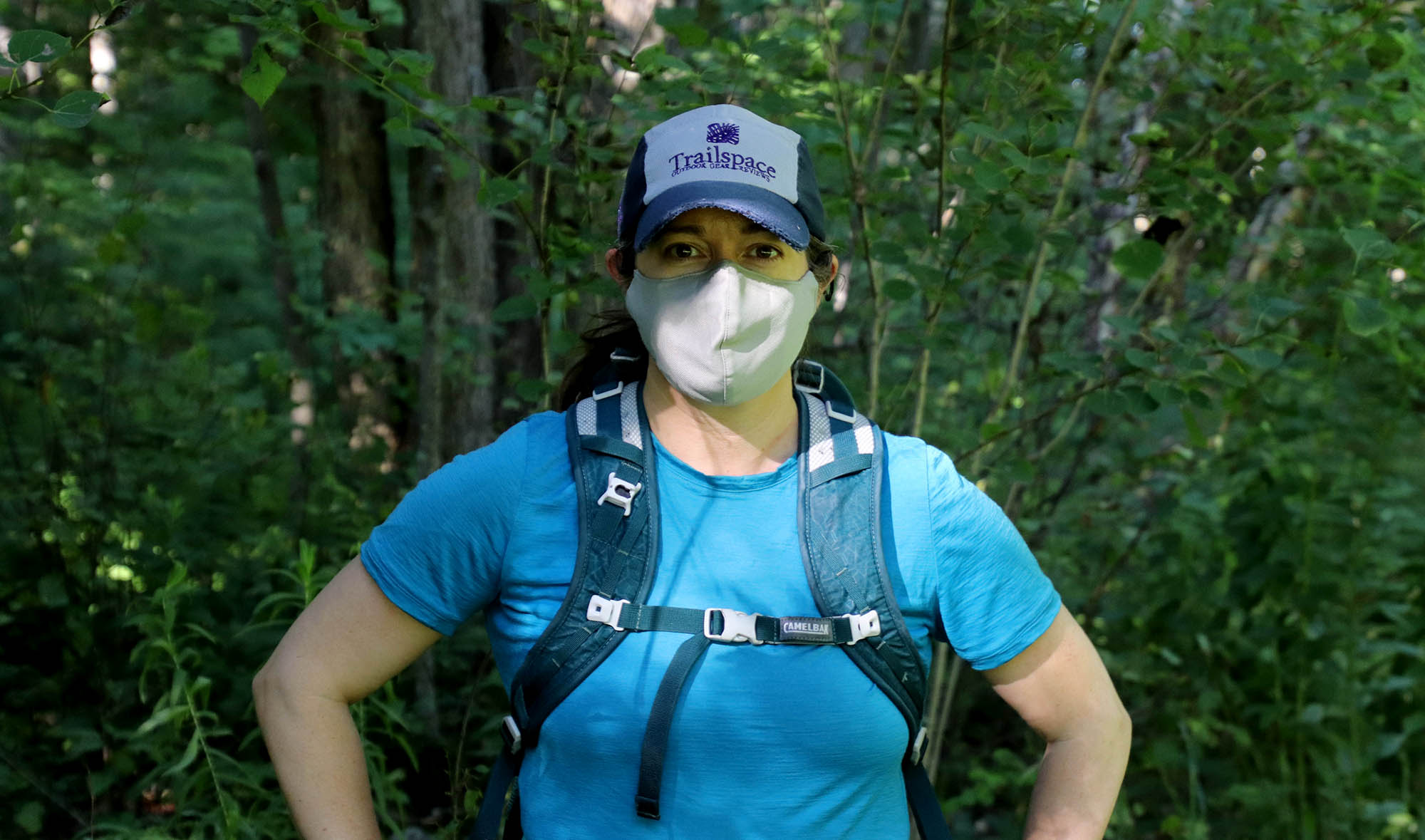
Face masks are now a part of everyday life. But there are a few additional factors to consider when you're planning to mask up for outdoor activities:
Your Activity: Are you going to be running or will you be standing around? How close will you be to others? Consider different masks based on your activity and its level of physical distancing—inside a store versus running outside, for example. If you'll be keeping a mask on while exercising, look for one specifically designed for exercise.
Fabric/Material: Just like you do for outdoor apparel, consider what fabric you want against your skin during your activity. If you'll be exercising, and likely sweating—indoors or outside—consider a lightweight, synthetic, moisture-wicking material. For everyday or less-sweaty use, 100 percent cotton with a tight weave is highly recommended. Wool and hemp are other natural fiber options. Tighter weaves generally mean greater protection from respiratory droplets.
Antimicrobial: Some fabrics have an antimicrobial treatment added to provide resistance to microbes and germs, especially helpful if you'll be sweating in your mask. Some natural fibers, like wool and hemp, have their own antimicrobial properties.
Layers: Masks with multiple layers are more effective. You want at least a double-layer mask, though some come in three or four layers.
Filters: A pocket for a replaceable filter adds an additional layer of filtration and protection. Most filters block some amount of airborne particulates. Some block microscopic bacterial and viral particles. Read the manufacturer's specs.
Breathability: A mask's shape, material, and number of layers all affect breathability. Masks with pleats and folds create a pocket for more airflow through the fabric, versus a flat design, which isn't as effective. If you can't breathe through your mask, you probably won't keep using it.
Size: Do you have kids heading outdoors, to sports practices, or back to school? Many masks come in small or youth sizes. Adults don't come in one-size-fits-all either. For example, if you have a beard, you may need a larger or longer mask. Check the brand's size chart and measure your face before buying. All "one-size" masks are not the same size, and some masks come in a range of sizes.
Fit & Adjustment: Your mask needs to fit comfortably, so you'll wear it. Masks should be shaped to fit your face and cover your nose and mouth fully and securely. Gaps around the edges reduce efficacy. A moldable wire across the nose for fit is helpful. Adjustable cords and ties can also help with fit.
Reversibility: A reversible mask gives you two color or pattern options for the price of one. However, do not flip over and reverse a mask you've been using, only a clean one.
Philanthropy: You can do even more public good by buying a mask from a company that donates masks to individuals or groups in need or that supports a nonprofit.
Availability: Masks often sell out. You may need to pre-order, wait for availability, or sign up to receive notifications when a specific mask is available. It's helpful to have extras to rotate through.
Use: If you have to take your mask on and off—such as on to pass other hikers or off to drink water—avoid touching the outside of the mask. Try to limit contact to its loops or ties. If you've been touching surfaces (a trail register, store shelf) while wearing it, clean your hands before and after handling your mask, either with soap and water or hand sanitizer.
Wash: Wash your mask regularly, preferably every day of use. You want a mask that can handle multiple washings. Do not use fabric softener. To prevent microbial growth, make sure your mask is dry before using it again, and consider a mask made of a naturally antimicrobial fiber or with a fabric treatment. If you're on the trail for multiple days rinse out your mask as needed and let it air dry.
For more info, the Centers for Disease Control and Prevention addresses face masks in its Use of Cloth Face Coverings to Help Slow the Spread of COVID-19.
Several brands have designed breathable masks specific for running and other highly-aerobic athletic endeavors.
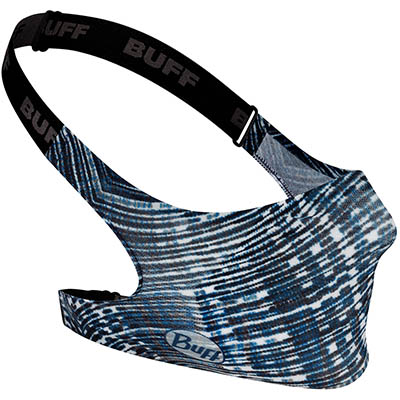
Buff, whose name is practically synonymous with face coverings, has its headquarters and factory in Spain and felt the impact of COVID-19 early. As the virus moved through Europe, Buff's employees were sent home for safety, production paused, and the brand started brainstorming ways to provide aid. The result is the Buff Filter Mask and a philanthropic partnership with UNICEF.
Developed specifically for all-day active use, the Filter Mask has a three-layer replaceable filter system that blocks 98 percent of airborne particulates. The inside mesh filter pocket is treated with HeiQ V-Block NPJ03 to reduce the buildup of bacteria and germs. Made with CoolNet UV+ cooling technology fabric, it's designed to be lightweight, highly breathable, and easily adjustable.
BUFF is also introducing the Filter Tube. Based on its multifunctional headwear, the BUFF Filter Tube includes the tube and five 3-layer filters ($29).
In addition, Buff is donating 2 percent of its 2020 global revenues, including all sales from its Filter Masks, to UNICEF.
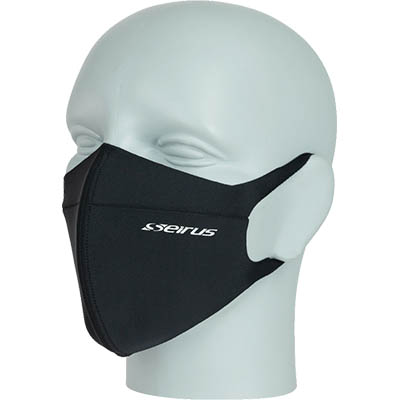
Seirus, another long-time manufacturer of active face masks, has introduced the BIO Arc Masque, a contoured mask designed for outdoor activities like running. It's designed with a Flexible Central Arc to fit naturally and create a "Free-Breathing / Talking Pocket." Made with a stretch outer and a wicking mesh inner, Seirus says the two-layer mask is made thin and breathable for exercise.
This fall Seirus will launch a line of additional face protection featuring the antimicrobial fabric treatment HeiQ V-Block (Viroblock), including a new version of the BIO Arc Masque called the EVO Arc Masque.
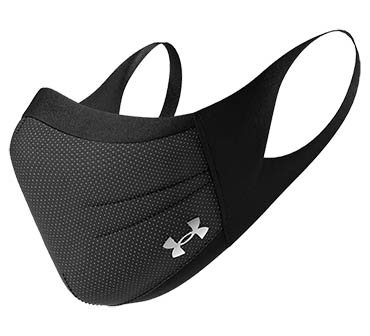
The UA Sportsmask is specifically designed for athletes and promises "the airflow you need, a cool feel, and the best fit for running or training." It has a water-resistant outer shell with smooth, breathable spacer fabric. Polyurethane open-cell foam lets air through, but makes it hard for moisture and sweat to pass through. The inside layer has an antimicrobial treatment called PROTX2. The interior lining and ear loops are made with UA Iso-Chill fabric to feel cool to the touch, all day.
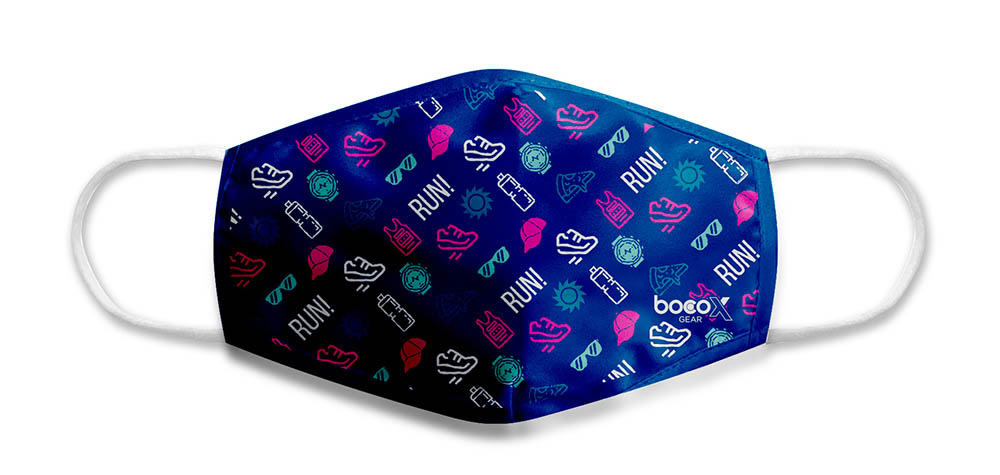
BOCO Gear's performance X (for exercise) mask is designed for high output activities, like running or biking. A lighter, updated version of its original face mask, the X mask is made with two layers of durable knit performance fabric and has an internal layer featuring a slit to hold a filter. BOCO also offers custom face masks.
Whether it's for the school classroom, trips to the park, or sports, kids need face masks that fit well too.
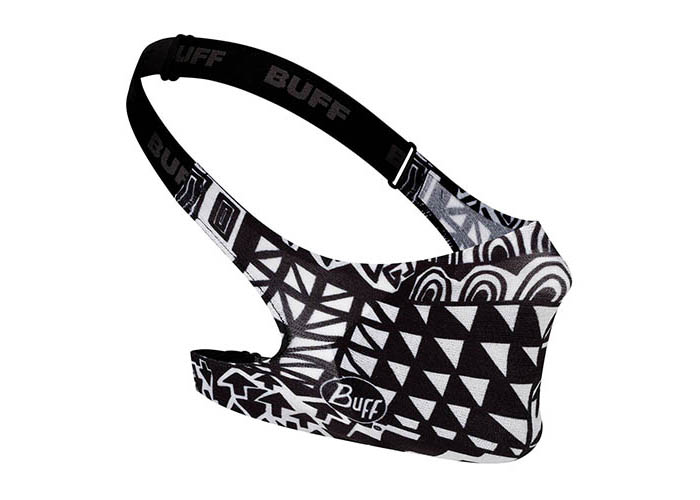
For kids 3 to 12 years old, the Buff Junior Filter Mask is a sized-down version of Buff's adult mask. The breathable Junior Filter Mask has a three-layer replaceable filter system that blocks 98 percent of airborne particulates and is treated with HeiQ V-Block NPJ03 to reduce the buildup of bacteria and germs. It's made with CoolNet UV+ cooling technology fabric and is meant for all-day active use. And like the regular version, all revenues go to UNICEF.
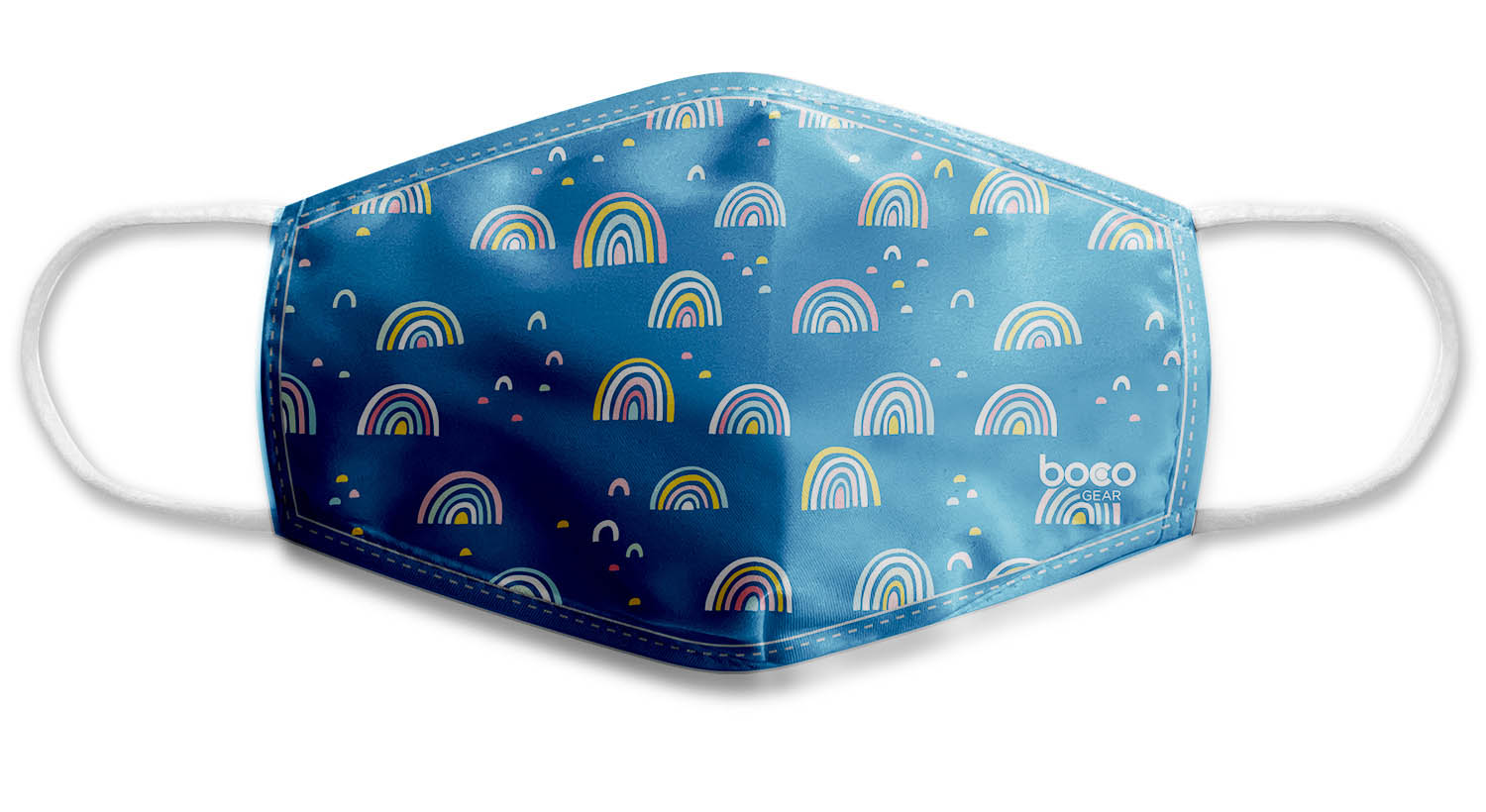 BOCO's original Face Mask comes in kids sizes for those under 10. Masks are made with a two-layer fabric design with an internal pocket slit to hold a filter. The outer layer consists of woven polyester fabric and the inner layer is a durable knit performance fabric.
BOCO's original Face Mask comes in kids sizes for those under 10. Masks are made with a two-layer fabric design with an internal pocket slit to hold a filter. The outer layer consists of woven polyester fabric and the inner layer is a durable knit performance fabric.
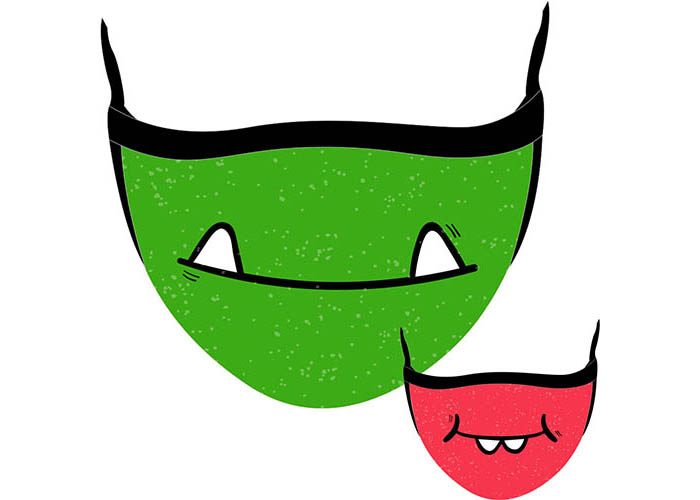
Headsweat's reversible Elite Face Mask also comes in a size small for petite faces. The breathable, moisture-wicking masks are made from triple-layered 100 percent polyester and have a permanent middle layer that helps screen some airborne particles.
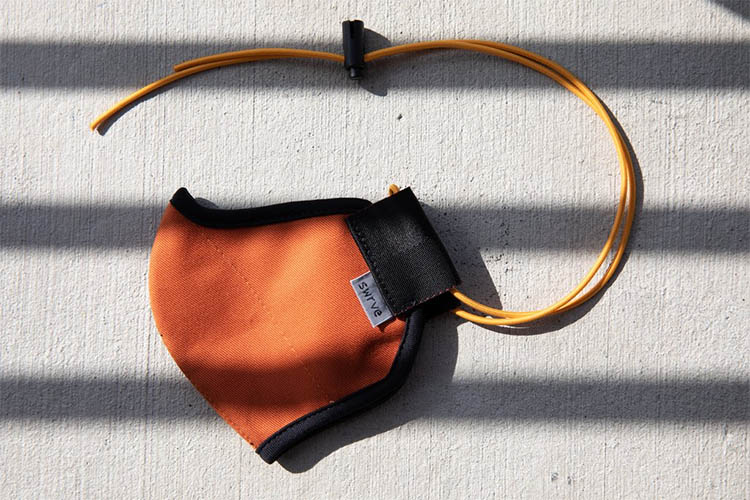
Swrve offers an assortment of masks in both kids and adult sizes and in an array of fabrics. Kids masks come in summer (7 oz 100% cotton twill) and mid-summer cotton (4.5 oz 100% cotton). Adults additionally can get long versions, plus masks made of four-layer cotton, four-layer ponti knit 100% merino wool, and felted wool.
Numerous outdoor brands have pivoted their American manufacturing this year in order to produce millions of Personal Protective Equipment (PPE) in the fight against COVID-19.
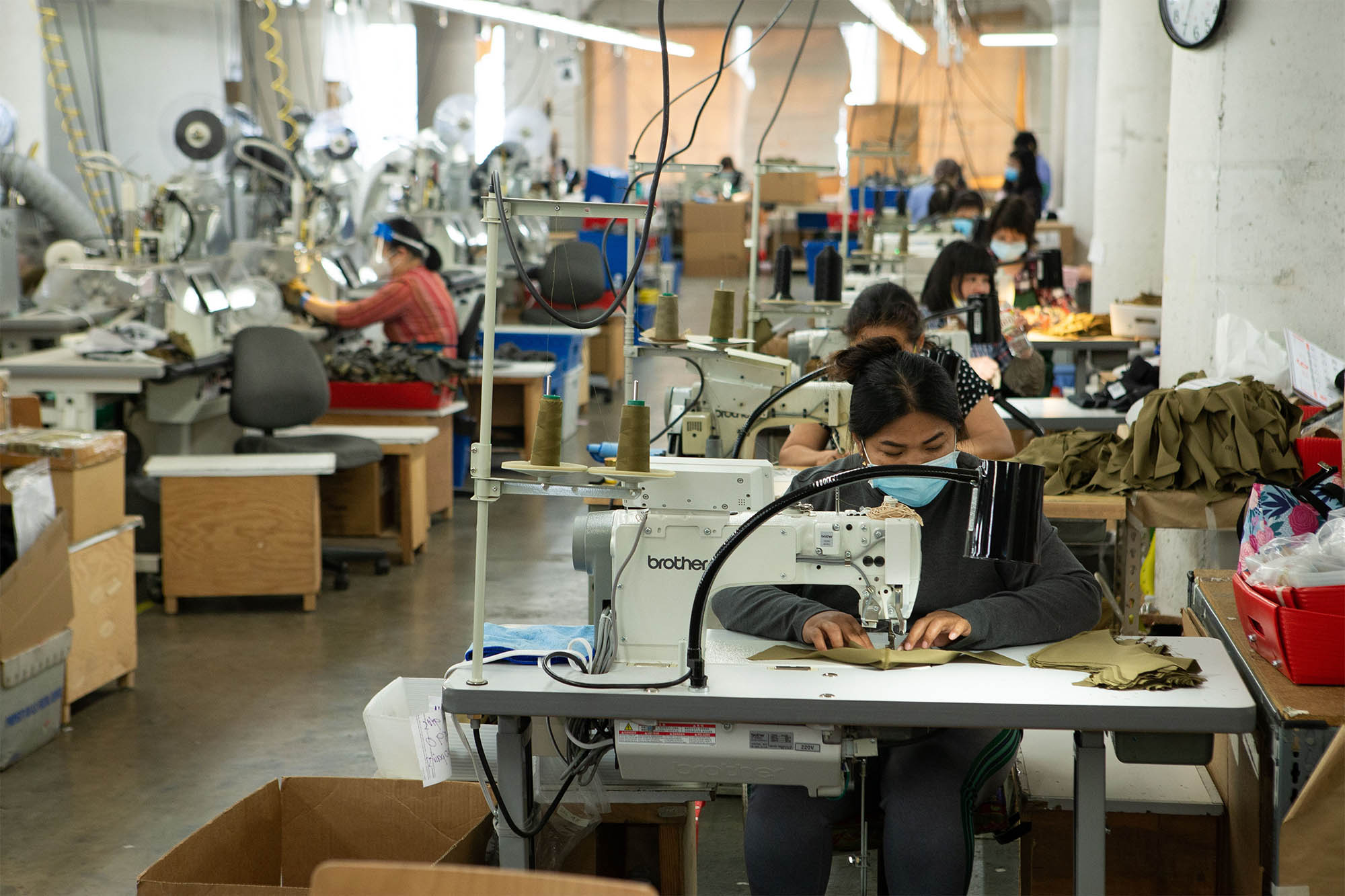
Photo: Outdoor Research
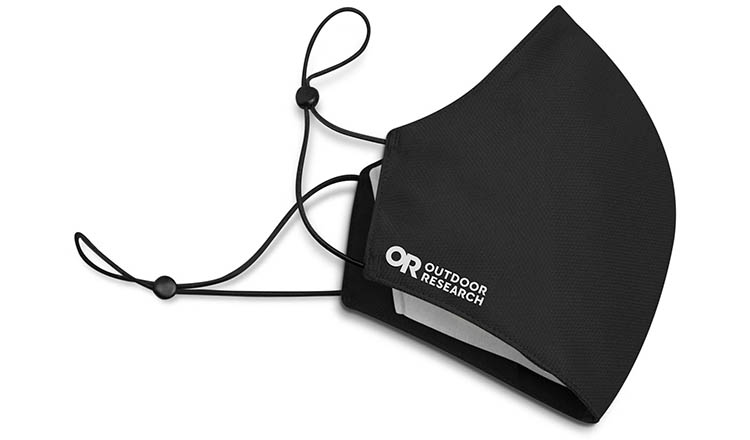
Outdoor Research was among the first outdoor companies to make PPE. Since March they've built more than 2.5 million masks, hired 130 workers, and have built capacity to produce up to 200,000 masks a day, including ASTM level 3 surgical masks and N95 Respirator Masks.
If you're not a medical professional, you can buy Outdoor Research's Essential Face Mask, which was designed with both outdoor activities and everyday use in mind. Its replaceable, made-in the USA filter, blocks more than 95 percent of virus, bacteria, and particles. The Essential Face Mask is treated with an antimicrobial known as HeiQ NPJ03 to provide resistance to microbes and germs. It has adjustable ear loops and a nose wire for a comfortable fit and tight seal. It comes with three filters and a plastic pouch for storage.
I bought two of OR's face masks as my first "real" (i.e. not homemade) masks, as soon as they were available. My teenager immediately took the black one to have while doing trail work or riding at the mountain bike park. The masks fit us both well, and are now my first choice, particularly if I might be in proximity to others, like at a store.
In September, Outdoor Research will expand on its Essential Face Mask with the Essential Uber Tube neck gaiter and Essential Balaclava. These cold-weather face masks, in light and mid weights, are also treated with antimicrobial HeiQ NPJ03, and designed with OR’s proprietary filter element. They'll come with three replacement filters and a reusable zip pouch.
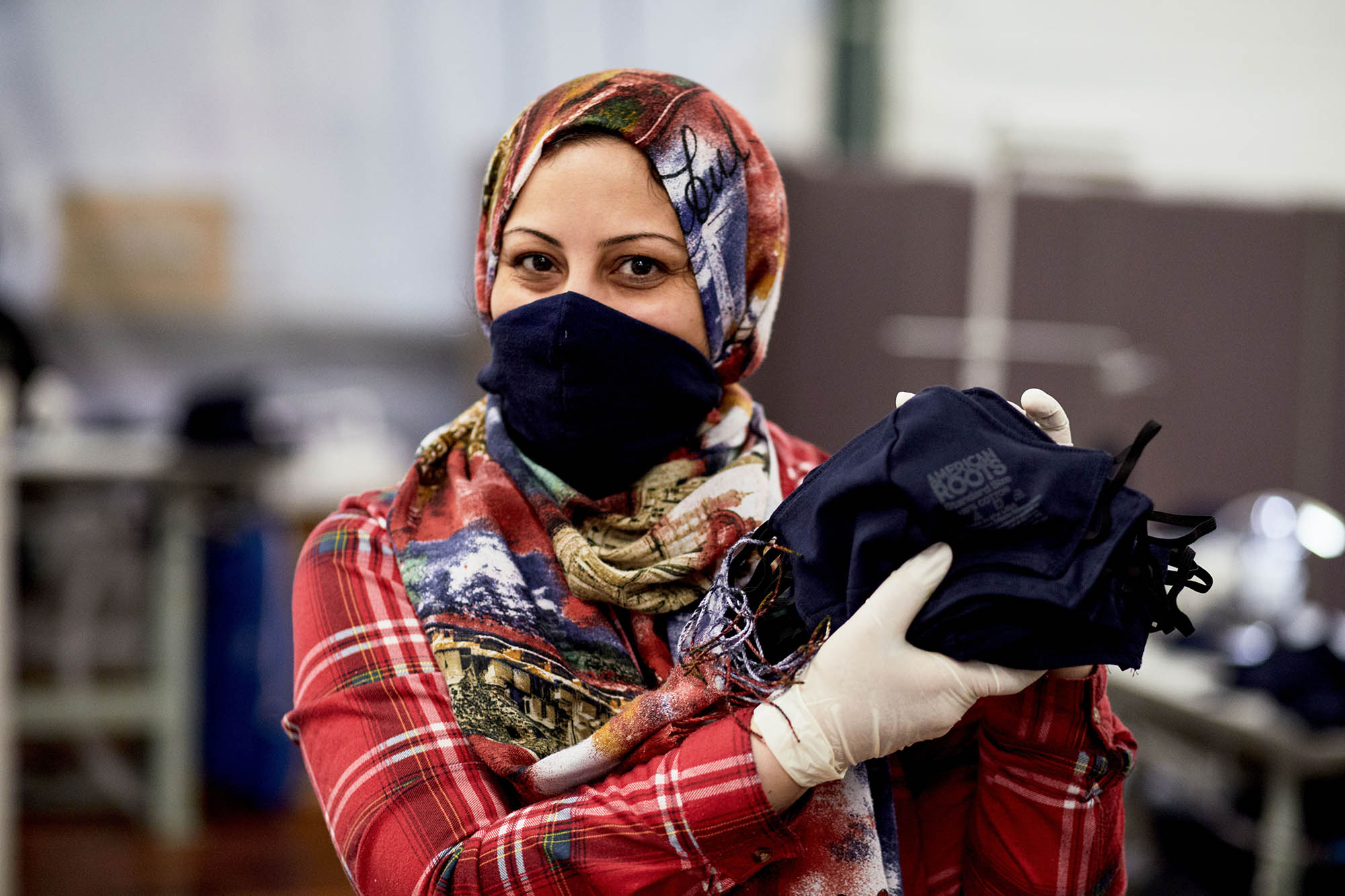
Photo: Michael D. Wilson for American Roots
Like all of its products, American Roots's face masks are 100-percent American-made and 100-percent union-made. The masks are made from comfort cotton jersey and have an opening to insert a replaceable filter. American Roots offers masks in bulk packs of 10. They also can be ordered with a logo for bulk purchases. American Roots will be launching a kids size mask and a clear face mask in the coming weeks.
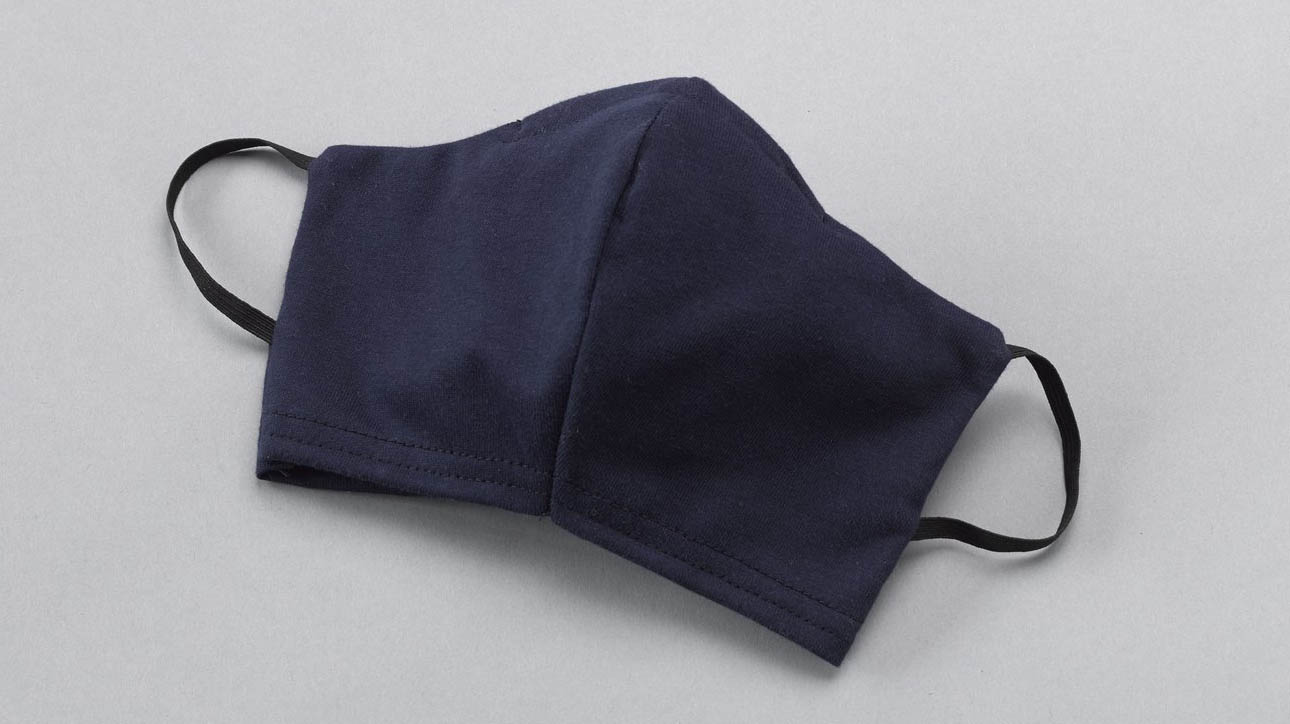
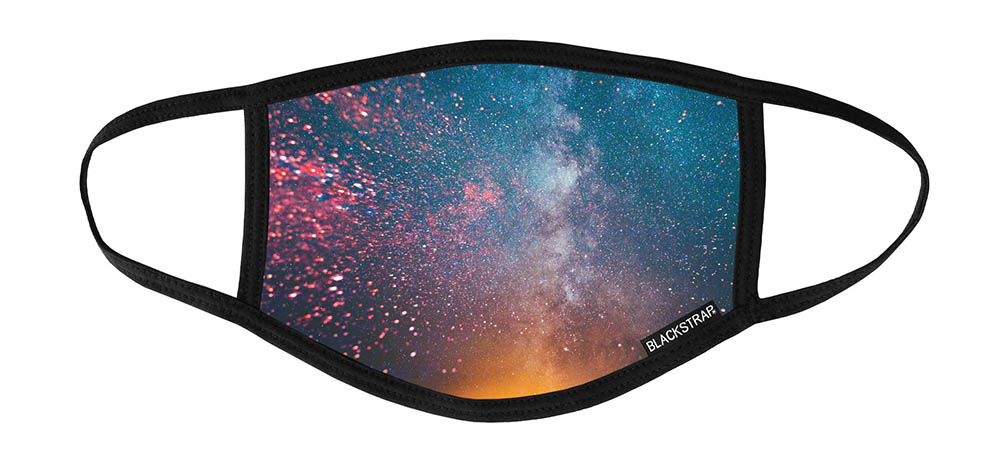
BlackStrap makes its Civil Mask from its own upcycled fabric milled in the USA. The mask has a dual-layer, tightly woven construction with breathable mesh liner. Bonus: For every mask purchased, BlackStrap donates another to a community entity or individual in need, so far more than 60,000 masks. You can even nominate an agency, company, or individual in need.
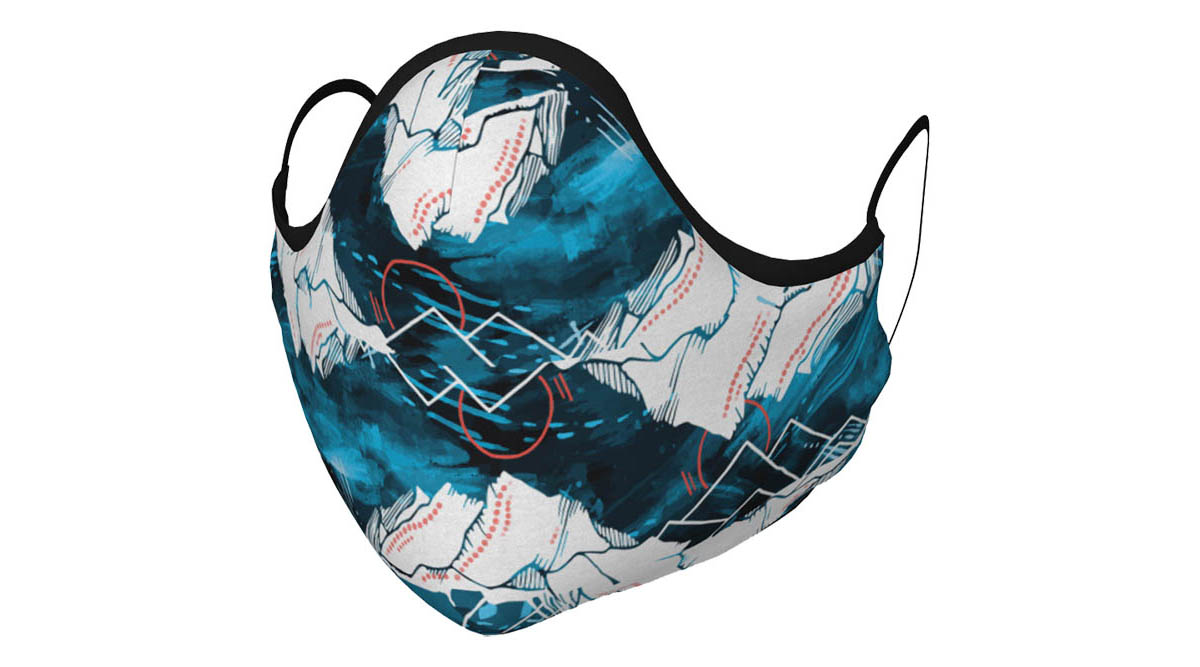
*Yup, we know Montreal is in Canada, not the United States, but we wanted to give a nod to our neighbors to the north. Coalition Snow transferred graphics from its line of skis and snowboards into cotton sateen face coverings printed with permanent reactive inks that won’t wash out or fade away. Masks feature an internal pocket for a filter of your choice, stainless steel adjustable nose pieces, and soft fabric ear ties
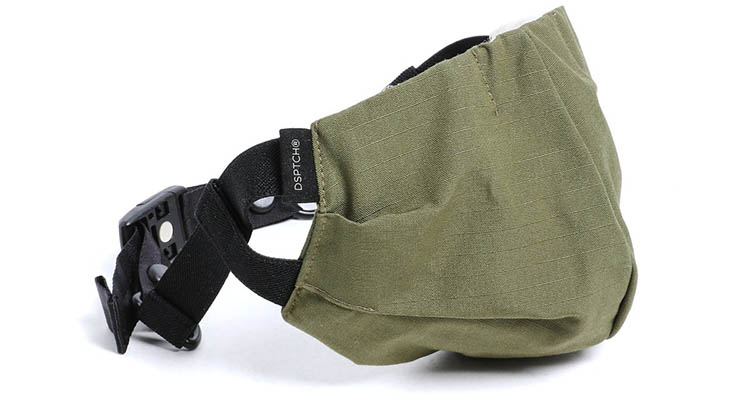
DSPTCH calls its mask a “bandana” style. It features quick-release buckle, which can be removed before washing or used with other masks as an alternative to over-the-ear bands. (It also sells the buckle separately as a Face Covering Strap that attaches to other masks.) A DIY filter can be cut to size and put in a pocket between the two layers of fabric. Bonus: DSPTCH is donating all proceeds from mask sales to the Equal Justice Initiative.
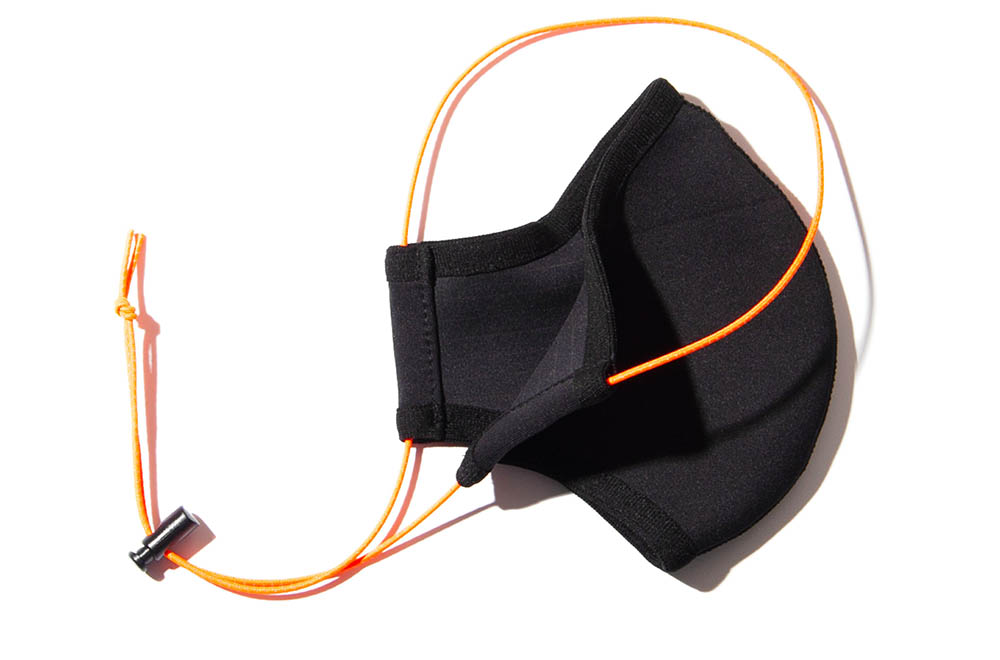
The newest brand here, Everywear Market is launching an antibacterial mask for the active user. Everywear Mask designer and founder David Ferron is a 2011 graduate of Parsons School of Design, where he received the Designer of the Year Award for womenswear. Having an art teacher mother with an immune deficiency, he wanted to develop masks "so good people would want to wear them." His forthcoming Everywear Mask is made from breathable neoprene and contains Copper Coated Conductive Antibacterial Nylon fiber 2% / ATB-UV+. It has an adjustable toggle, hidden nose bridge wire, and is quick-drying. In future editions Ferron hopes to focus on masks in a range of skin colors.
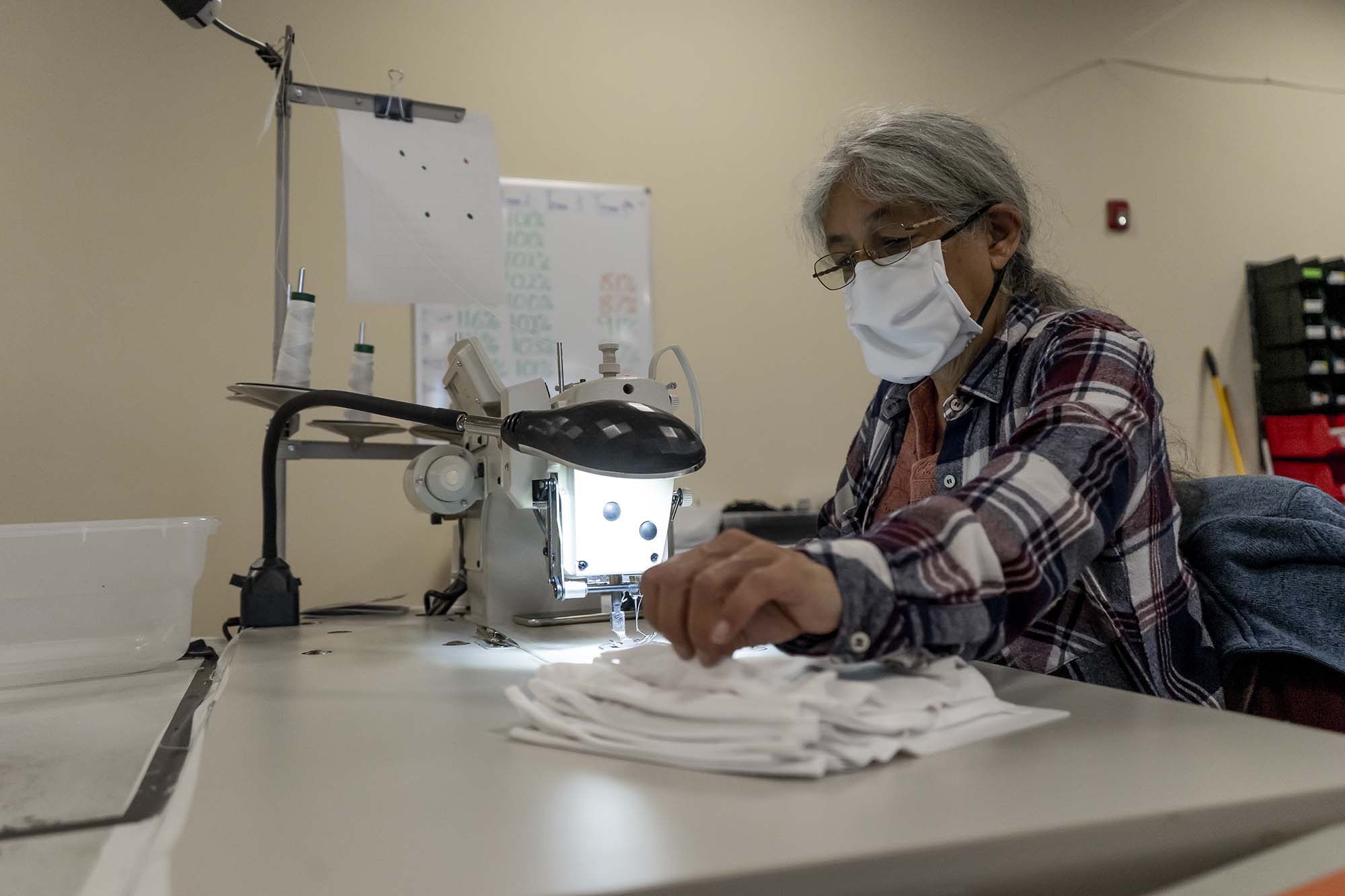
Photo: Hyperlite Mountain Gear
Hyperlite Mountain Gear's two-layer face masks are made from a breathable, hydrophobic, interlock polyester fabric with skin-friendly DWR coating. They feature dual elastic ear loops and an adjustable wire top seam. These masks are among the more affordable options I've come across, as you can get them in a pack of five for $20. Made in Maine where I live, I bought a pack and their size and price makes it easy to stash one for a hike or run.
$20 at Hyperlite Mountain Gear
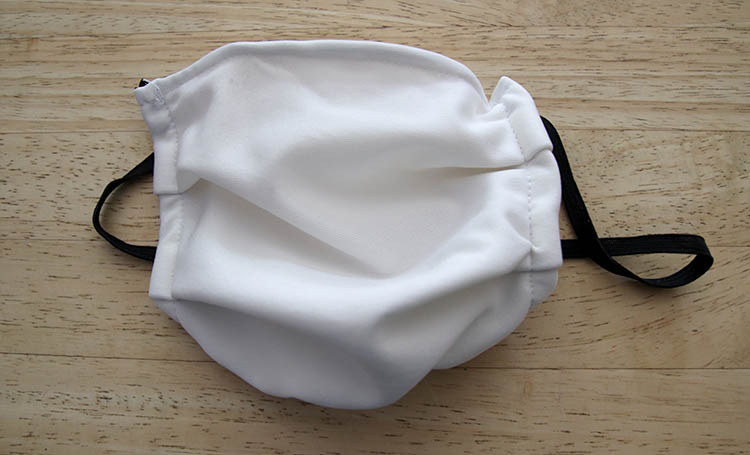
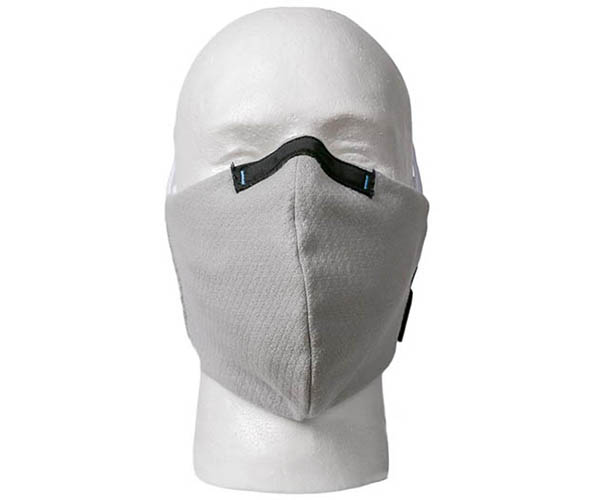
Kitsbow Cycling Apparel pivoted its North Carolina manufacturing to PPE and offers the Wake ProTech Reusable Face Mask designed in collaboration with Wake Forest Baptist Health. Designed for long masked days, the Wake ProTech is made with four layers: an exterior layer of premium jacquard fabric, two layers of protective filter media sewn into the mask, and 100-percent cotton muslin lining. Every component is made in the U.S., except for the cordlocks. Front-line workers and veterans can receive a 20-percent discount.
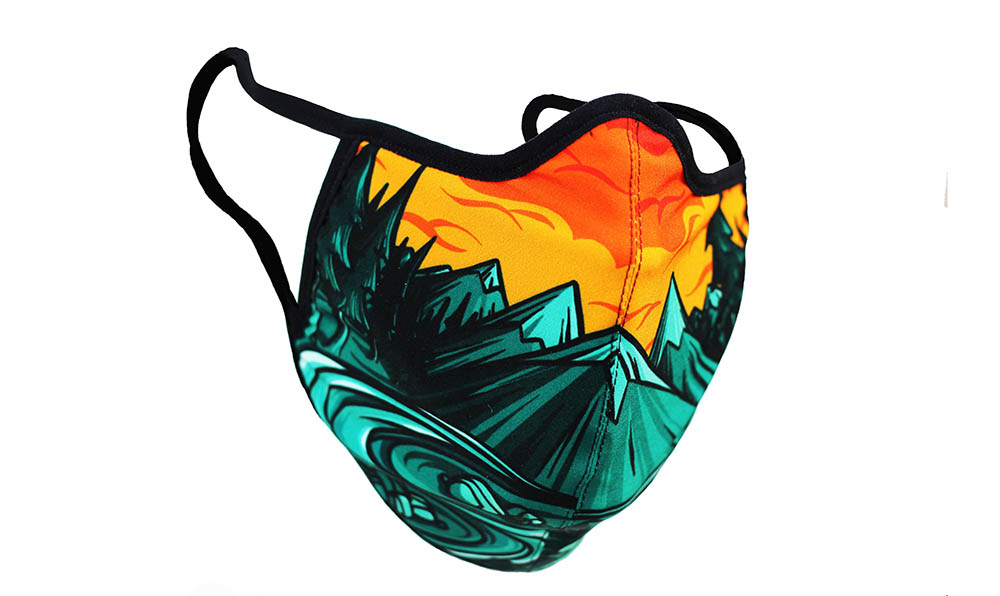
NW Alpine's everyday masks are available in six standout designs by artist Stefan Bast, plus white and camo. (My kids and I were so impressed looking at the options we ended up buying two.) They're made from a breathable, stretch woven polyester face fabric and cotton blend lining with antimicrobial finish. NW Alpine also makes some masks for Trew (see below).
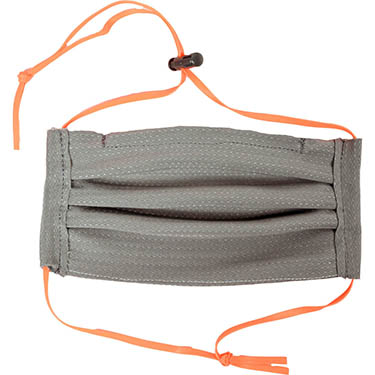
Like its packs, Mystery Ranch's masks promise durability and abrasion resistance. The Traditional Mask comes in one size and has a slot for an N95 filter. The Street Mask comes in two sizes and does not accept a filter. Both have an adjustable nose bridge and are made from DRI-LEX fabric, which promises moisture movement properties.
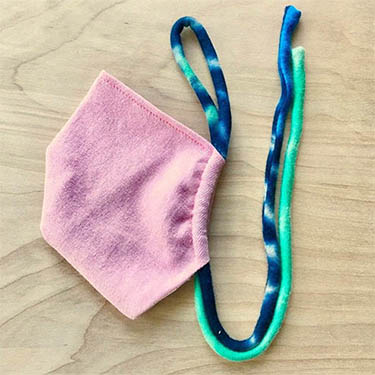
Shiner Goods, makers of hemp climbing pants, offers a hemp and organic cotton blend mask. The two-layer design include a pocket for a replaceable filter in the middle, and the fibers promise masks that are durable, breathable, naturally antimicrobial, comfortable, and sustainable.
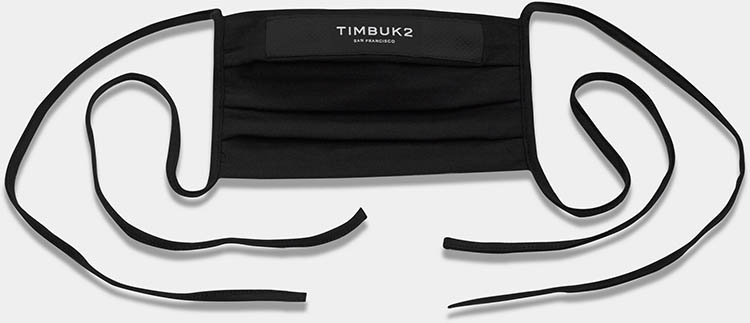
If you're tired of ear loops, Timbuk2's Face Mask comes with top and bottom ties that can be cut to your preferred length and then tied around your head. Made from two layers of cotton jersey, it has an envelope-style pocket for adding a filter.
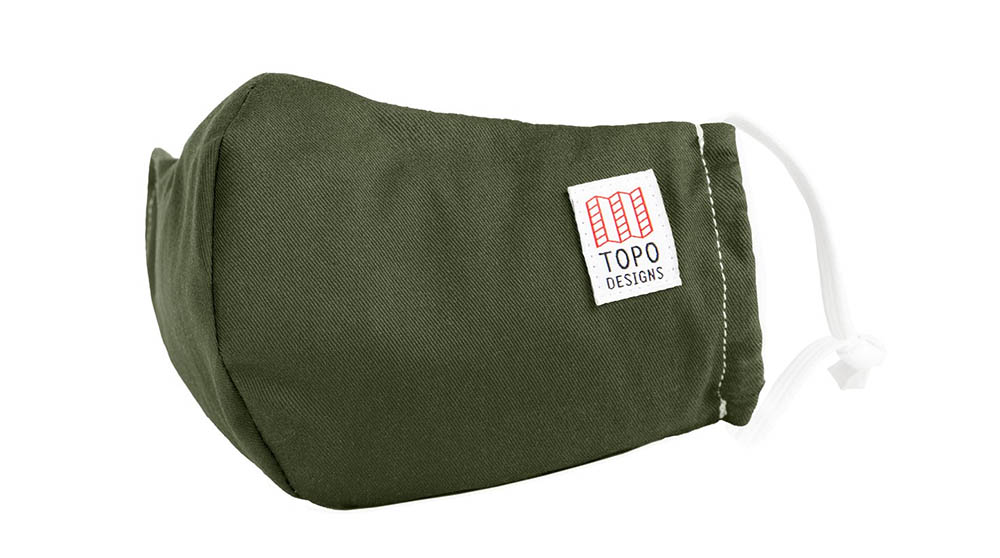
Topo Design's Face Masks are built with a double-layer construction and feature an interior pocket for a filter, adjustable elastic bands, and a bendable metal nose strip. Bonus: A portion of proceeds go into manufacturing more masks for the Colorado Mask Project, which supplies masks to vulnerable populations and the essential workforce.
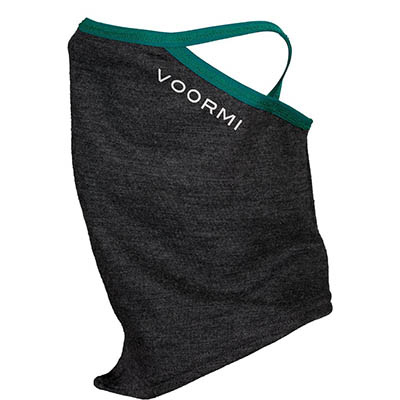
Voormi, an American maker of wool apparel, took its popular Precision Blended Wool neck gaiter and transformed it into a face covering with neck loops. The Everyday Gaiter is made from Voormi's lightweight, dual surface precision blended wool, which is 73% wool, 25% polyester, and 2% Lycra, and has a fabric weight of 185 g/m2.
In addition to Buff's pledge to UNICEF, BlackStrap's donation to individuals in need, DSPTCH's support of the Equal Justice Initiative, and Topo Designs's support of the Colorado Mask Project, here are more outdoor companies giving back by masking up.
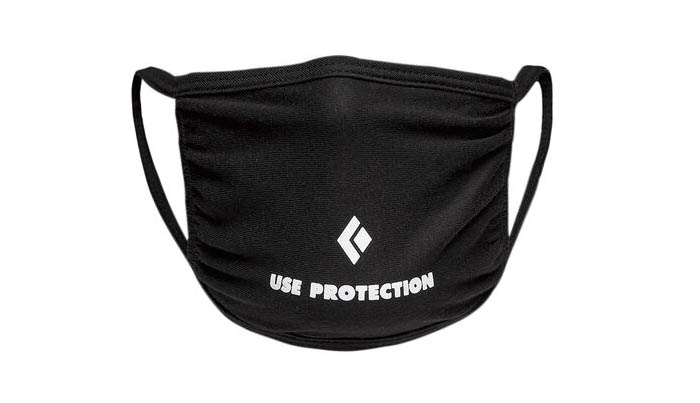
Made of two-layer cotton, Black Diamond donates a mask to a frontline worker in need for each Use Protection mission mask sold.
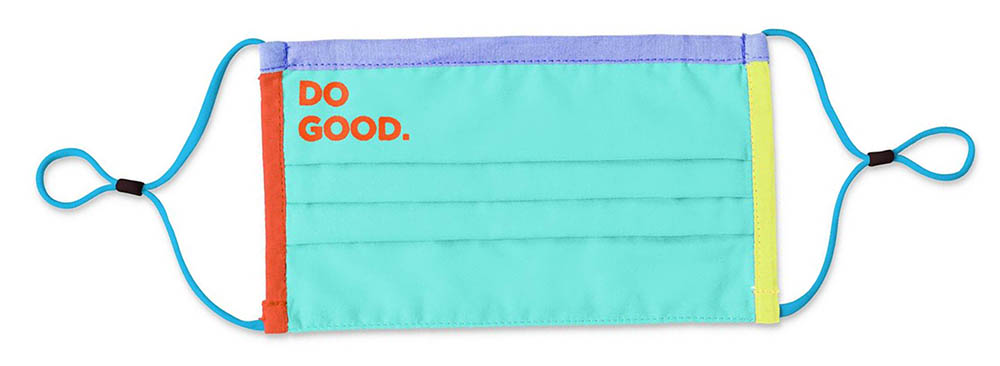
When you buy one of Cotopaxi's colorful, reversible face masks, it gives another away through its nonprofit partner, Mercy Corps. The face masks are made from 100-percent tightly woven cotton that is also 100-percent repurposed fabric. They feature a wire nose adjustment, adjustable ear loops, and accordion pleats to adjust to your face shape.
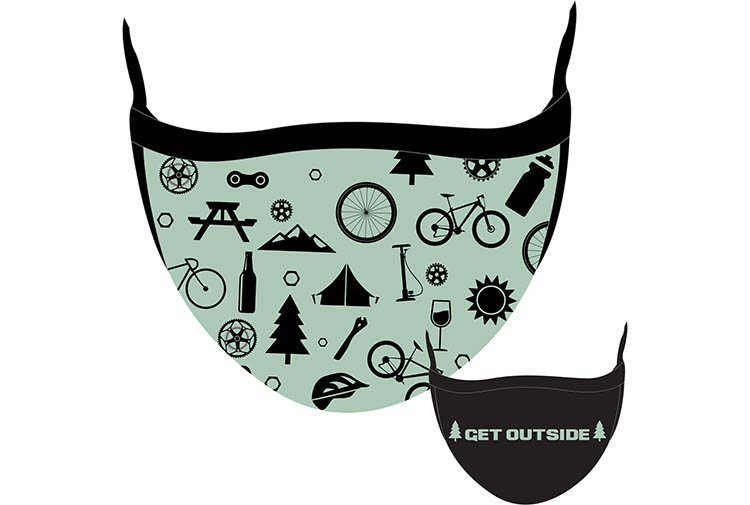
For each Elite Face Mask purchased, Headsweats will donate one to Grassroots Aid Partnership. The Elite Face Mask is reversible, moisture-wicking, and has a permanent middle layer to help screen some airborne particles.
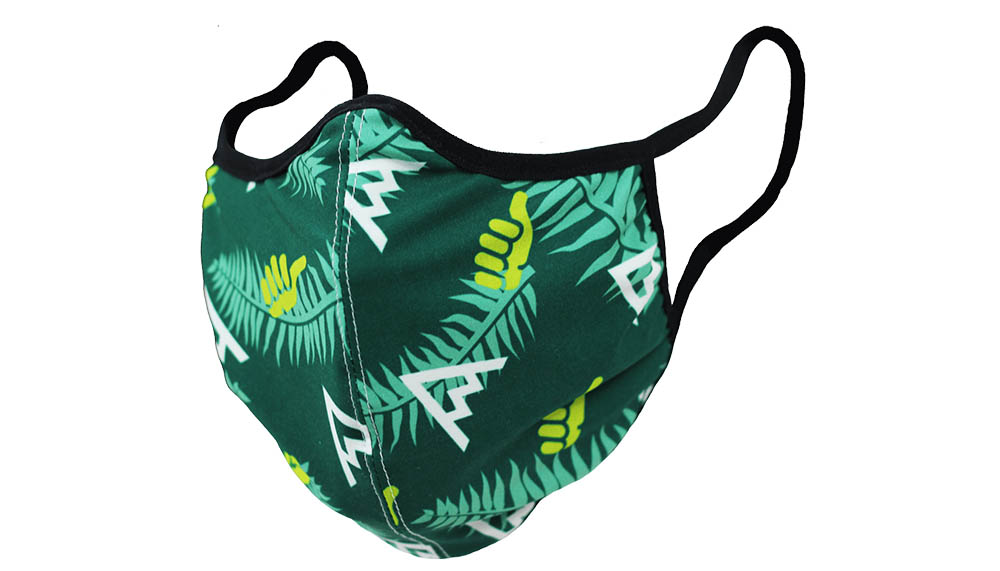
NW Alpine designed and made a mask for Trew, with 50 percent of its profits going to the Oregon Community Recovery Fund. The mask is made from a breathable, stretch woven polyester face fabric and a cotton blend lining with antimicrobial finish.
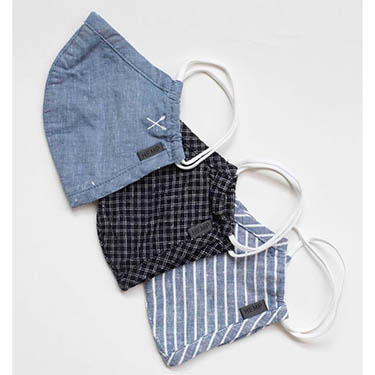
For each three-pack purchased, United by Blue donates a mask to Chosen 300 to benefit Philadelphia residents experiencing homelessness. United by Blue's double-layered mask has space for a filter and is made from deadstock fabric, a blend of hemp, organic cotton, and recycled polyester.
While the CDC doesn't recommend face shields for everyday activities or as a substitute for cloth face coverings, some health care providers may use them for extra protection with a mask. They may also be used for lip reading to help people with hearing and other communication disorders.
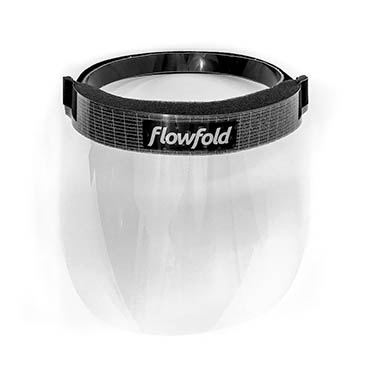
For those who need full visibility of facial expressions and lip reading, Flowfold's face shields are made out of durable anti-fog PET plastic. Flowfold pivoted to making protective face shields for hospitals and clinics in March in response to the COVID-19 outbreak. The company retooled its entire Maine manufacturing space in just eight days.
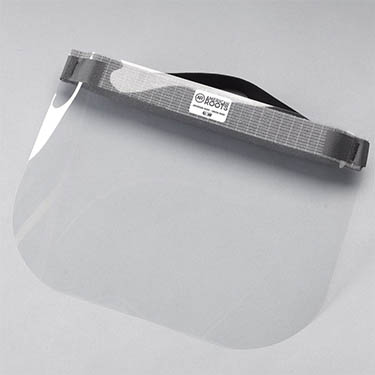
American Roots is also making face shields in its Maine factory. Its masks are made from 10 mil anti-fog PET plastic and have a soft polyurethane foam spanning the full width of the shield to rest on the forehead. All of American Roots's products are 100-percent union made.
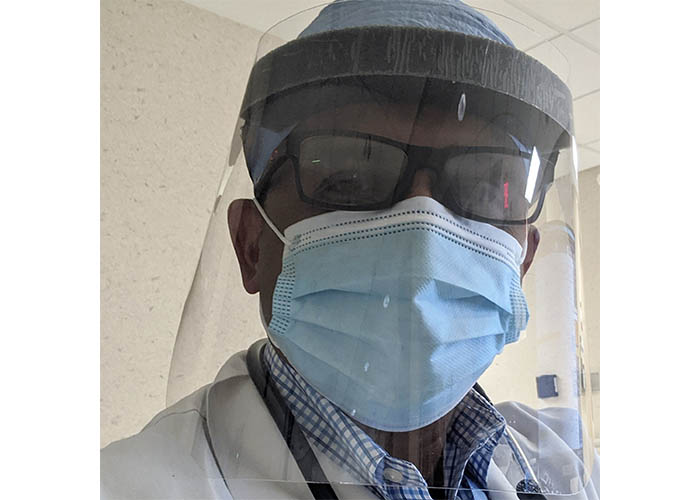
Kitsbow initially moved to supply PPE to First Responders and Medical Providers, but has expanded its capacity to serve others. Made from material entirely sourced in the U.S.A., Kitsbow's Face Shield is intended for single use and protects the user's face and eyes.
Got a mask and wondering when and how you need to use it? Read on.
You should bring a face mask when you hike, run, camp, or bike. In fact, some parks require it. Maine's Baxter State Park mandates that "visitors carry a mask or cloth face covering, and wear it whenever maintaining physical distancing guidelines is not possible, including when passing other hikers along the trail."
You don't need to wear a mask when you're with your own household members or maintaining 6-foot physical distancing. However, you should have it handy for when you can't distance, such as when passing others on the trail, at the trailhead or campground, on a summit—wherever you come into closer contact with others.
Put on your mask—fully covering your mouth and nose—before you encounter others, then pass quickly.
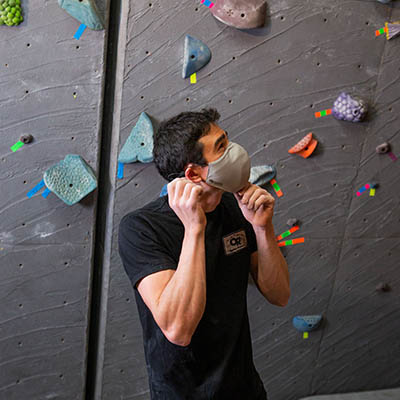
Same. Whatever your activity, it comes down to wearing a mask when you can't physically distance yourself from others.
Keep it handy—such as in an outer pack pocket—so you can put it on as soon as you see others. Avoid touching your mask unnecessarily and preferably hold it by the ties, not the front. Outdoor Research recommends storing its mask in the clear carry case that comes with it.
Keep your hands clean and don't touch your face or mask unnecessarily. Carry hand sanitizer and use it after touching public surfaces, like outhouses, trail registers, and picnic tables, and before touching your mask.
Check the directions, but fabric face masks can usually be washed in a washing machine. A filter should not be washed, but instead replaced periodically. On the trail, masks can be rinsed in clean water and hung to dry.
Mask maker Voormi says, "this is another area where wool shines. Like all our garments we find you don’t really need to wash them very often due odor, but if you need to, rinse them off in a stream and let them dry in the sun."
You could, but it probably won't offer the same level of protection as a form-fitting mask, let alone one with filtration. Buff even introduced its own filter mask in response to COVID-19 (see above).
In fact, a Duke study testing 14 different coverings showed that while face masks are effective in reducing droplet emissions, bandanas and neck gaiters didn’t block droplets much at all, with the neck gaiter potentially being worse than no-mask. You can see the study in Science Advances.
The CDC says: "Cloth face coverings should NOT be worn by children under the age of 2 or anyone who has trouble breathing, is unconscious, incapacitated, or otherwise unable to remove the mask without assistance." Beyond that, yes, you should be wearing a face mask when you can't physically distance. Consult your doctor with your specific medical concerns.
Heard of maskcne? Sweat and dirt will cause masks to become dirty and build up bacteria, so it's a good idea to wash your mask regularly. How frequently depends on your use, but experts suggest daily.
It depends on the filter and your use, such as how much you sweat, if you're wearing makeup, and other factors. Outdoor Research suggests replacing its filters after five to seven days of eight-hour use (or roughly 50 to 60 hours of total use).
Buff says its three-layer replacement filter system provide 98% Bacterial Filtration Efficiency for up to 24 hours of use. Coalition Snow says its PM2.5 filters can be used continuously for 16-24 hours, or for 1-2 weeks when used occasionally. BOCO Gear says its PM2.5 Activated Carbon Filters are effective for 40 hours of use. Check the manufacturer's recommendation for your filter.
Filters shouldn't be washed.
Most filters block some amount of airborne particulates. Some block bacterial and viral particles (viruses are significantly smaller than bacteria).
Medical grade N95 masks protect with 95 percent efficiency (hence their name) down to 0.3 microns. According to the Mayo Clinic, the coronavirus is about 0.12 microns in diameter, but it's blocked since it attaches to water droplets or biological material of 1 micron or larger.
Outdoor Research says its Essential Mask Filter removes 95 percent of virus, bacteria, and particles to 0.3 microns. That's the same level as many medical masks, though OR's mask doesn't receive the same certification because its sides don't seal the same way that medical masks do.
A PM2.5 filter, a common mask option, captures particulate matter in the air larger than 2.5 microns, such as dust, dirt, soot, or smoke.
Some face masks are treated with antimicrobial finishes or use natural fibers, like wool, which have their own antimicrobial properties. Antimicrobial masks will be more resistant to bacterial growth on their surface, which can be helpful for a product you wear on your face. They also may be more odor-resistant.
ATB-UV+ Silver and HeiQ V-Block are two examples of antimicrobial fabric treatments. Silver is naturally antimicrobial and releases positive ions that attach to the negative ions of bacteria. HeiQ V-Block uses recycled silver to make fabrics resistant to microbes and is added during the final stage of manufacturing. Outdoor Research's Essential Face Mask and Buff's Filter Mask use the HeiQ V-Block treatment, and Seirus is launching a line of products with it this fall.
Antimicrobial treatments do not kill COVID-19, which is a virus. Their effectiveness typically starts reducing after 30 to 40 washes.
The interest in antiviral fabrics designed to kill viruses on contact is understandably high, and you're probably wondering if any work against COVID-19. In lab tests, the patent-pending fabric technologies HeiQ Viroblock NPJ03 (or HeiQ V-Block) and PROTX2 AV have both reportedly tested 99.99 percent effective against the active SARS-CoV-2 virus (COVID-19).
However, in the United States, before companies can make a health claim such as being antiviral, technologies need to be registered with and gain regulatory approval from the Environmental Protection Agency and Food and Drug Administration, and no antiviral textiles are listed, yet.
HeiQ V-Block is used in Outdoor Research's Essential Face Mask, Buff's Filter Mask, and in a forthcoming line of products from Seirus. PROTX2 is used in Under Armour's UA Sportsmask and is reportedly being reviewed for its efficacy by the EPA.
None of the masks above are medical-grade masks, nor are they intended to be replacements for medical-grade PPE. Face masks and coverings limit exposure to COVID-19, but don't make you immune. They're only one part of the equation to reduce Coronavirus risk and spread.
The CDC recommends:
For more info, check out the CDC's Coronavirus (COVID-19) Info.
Disclosure: Some links above are affiliate links, which means Trailspace may earn a commission, at no cost to you, if you click through and buy something. Prices shown reflect prices at time of publication.